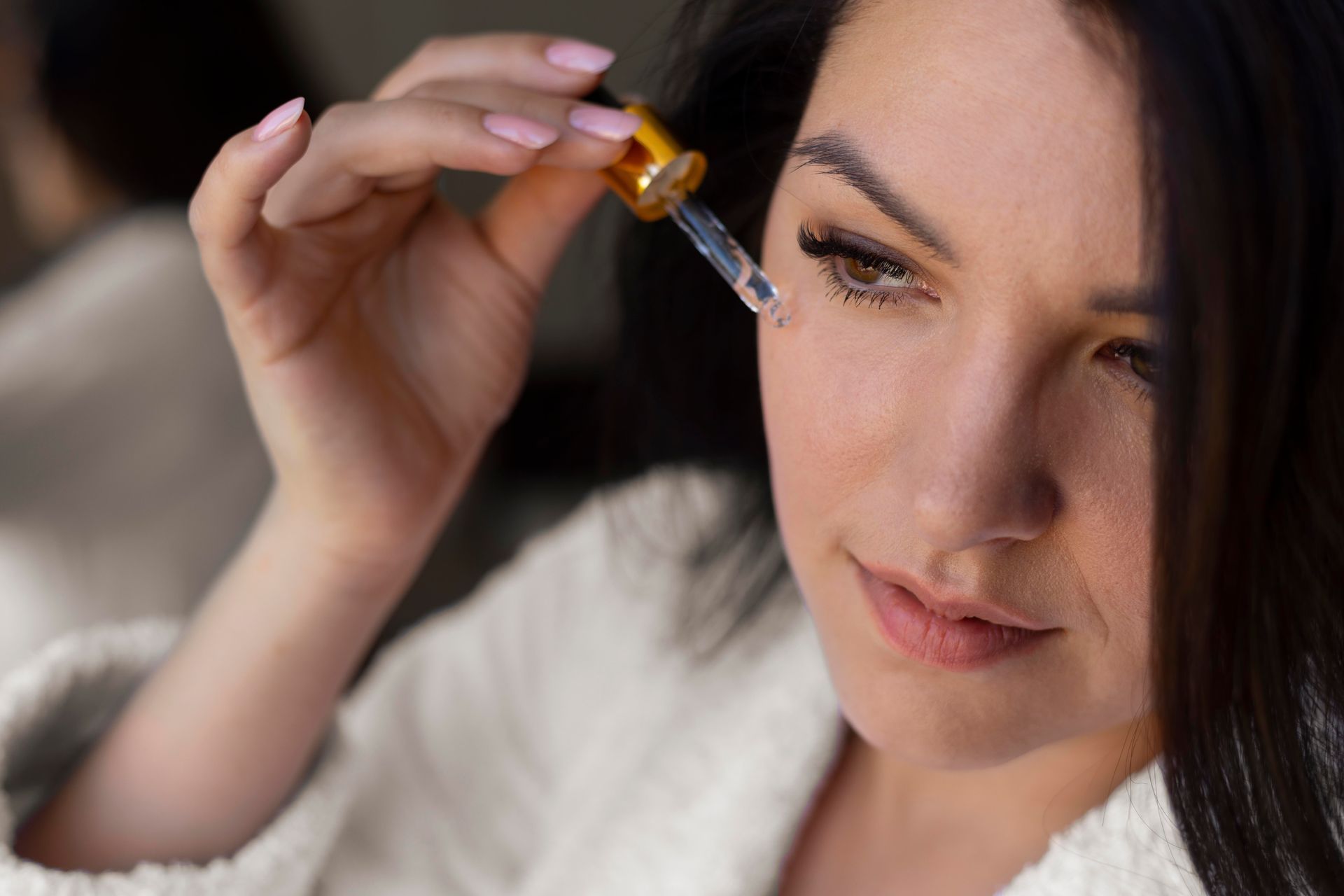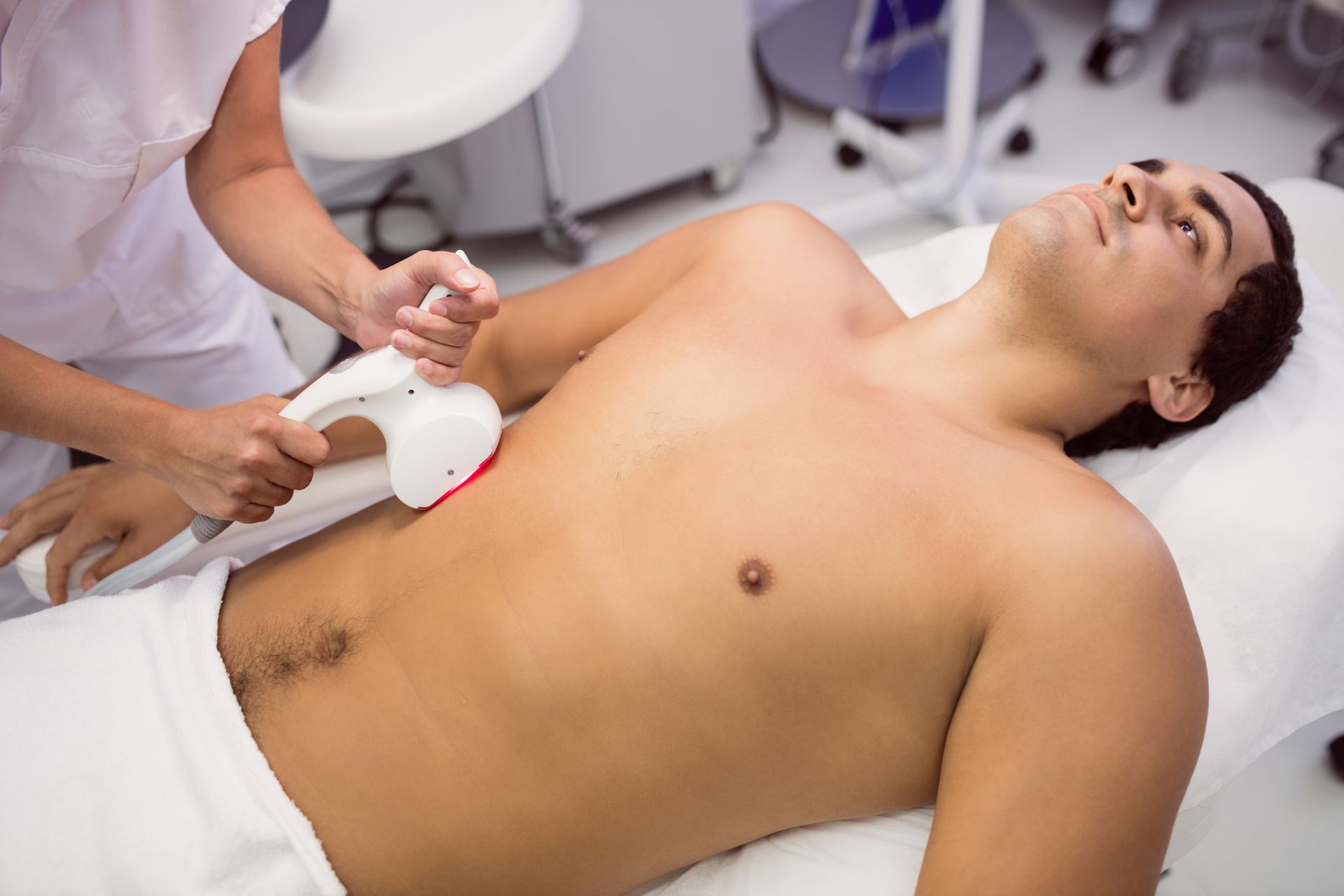Does Stress or Hormones Cause Post-Laser Regrowth?
So, you’ve invested in your laser hair removal sessions, enjoyed weeks or even months of smooth, hair-free skin… and then suddenly, you notice tiny hairs making a comeback. Frustrating, right? But before you assume your laser sessions “didn’t work,” here’s the truth — hormones and stress can play a big role in post-laser regrowth.
Let’s break it down: what’s normal, what’s hormonal, and what you can actually do about it.
How to Soothe Redness After Laser Hair Removal Naturally
Understanding How Laser Hair Removal Works
Laser hair removal targets hair follicles that are in the active growth phase (anagen). The laser light is absorbed by the melanin (pigment) in the hair, heating and disabling the follicle so it can’t grow new hair.
However, our bodies are full of millions of hair follicles, and they don’t all grow in sync. That’s why multiple sessions — typically 6–8 spaced weeks apart — are needed to catch as many follicles as possible when they’re active.
Even after a full series, some follicles may reactivate later, especially under certain hormonal or stress-related influences.
Hormones and Hair Growth: The Hidden Connection
Hormones are one of the most powerful regulators of hair growth in the body.
The main culprits are androgens, a group of hormones that include testosterone and DHT (dihydrotestosterone). While everyone has them, higher androgen levels can cause coarse, thick, or excessive hair growth — especially on areas like the face, chin, chest, or stomach.
When hormone levels fluctuate, new follicles can awaken, leading to regrowth even after successful laser sessions.
Common Hormonal Causes of Post-Laser Regrowth Include:
Polycystic Ovary Syndrome (PCOS): Women with PCOS often experience excessive hair growth due to elevated androgen levels. Even after laser hair removal, new growth can appear if hormone imbalance persists.
Thyroid Imbalance: Both hypothyroidism and hyperthyroidism can alter hair texture and growth rate.
Pregnancy or Postpartum Hormones: Hormonal surges during or after pregnancy may stimulate dormant hair follicles.
Menopause: Shifts in estrogen and testosterone can lead to unpredictable hair growth patterns.
Medications or Birth Control Changes: Some contraceptives, steroids, or hormonal therapies can indirectly cause new hair growth.
Laser can’t stop hormones from triggering new follicles — it can only treat the ones that were active during your sessions.
Does Stress Really Cause Hair to Grow Back After Laser?
Indirectly, yes — but not in the way most people think.
Stress doesn’t cause hair follicles to suddenly grow overnight. Instead, chronic stress disrupts hormonal balance, particularly cortisol, the body’s primary stress hormone.
High cortisol levels can affect other hormones (like estrogen and testosterone), leading to changes in hair growth cycles. Some follicles may “wake up,” producing new hair that wasn’t previously visible or active during your laser sessions.
Stress can also impact your immune and endocrine systems, potentially causing delayed shedding, uneven results, or increased regrowth between treatments.
So while stress doesn’t “undo” your laser results, it can definitely slow your progress or create the illusion of regrowth.
Can You Go Swimming After Laser Hair Removal?
Understanding the Difference Between Normal, Hormonal, and Stress-Related Regrowth
Not all post-laser hair is a sign of hormonal imbalance — sometimes, it’s just your body’s natural cycle catching up. After laser hair removal, the way your hair grows back can reveal a lot about what’s happening internally or how your sessions went.
Normal Regrowth
If you notice finer, lighter hairs appearing within three to six months of your treatment, that’s usually normal regrowth. This happens when a few follicles were missed during earlier sessions or because not all hair follicles were in the active growth phase when treated. The laser only targets hair in the anagen (growth) phase, so it’s common for some follicles to catch up later. With consistent sessions, these stray hairs tend to reduce over time.
Hormonal Regrowth
Hormonal regrowth, on the other hand, looks different — the hair is usually darker, coarser, and appears in hormone-sensitive areas such as the chin, neck, or chest. This type of regrowth can develop gradually, even years after you’ve completed your sessions. It’s often linked to hormonal changes caused by conditions like PCOS, thyroid imbalance, or other endocrine shifts. If you suspect this, it’s best to consult both your laser technician and a healthcare provider to assess hormone levels and plan supportive treatments.
Stress-Related Regrowth
Then there’s stress-related regrowth — patchy, inconsistent, and often showing up after a prolonged period of emotional or physical stress. Chronic stress raises cortisol levels, which can disrupt the normal hair growth cycle, leading to uneven results or unexpected new hair in certain areas. While stress alone doesn’t undo your laser results, it can alter your body’s natural rhythm enough to make hair appear where you least expect it.
When to Seek Advice
If your regrowth feels thicker, darker, or appears suddenly after your sessions, don’t panic — but do take note. Reaching out to your laser technician can help rule out treatment-related factors, while consulting a healthcare provider ensures you’re not overlooking any hormonal or stress-related triggers. Often, addressing internal balance alongside consistent maintenance sessions helps restore the smooth results you’re aiming for.
Can Hormonal Hair Growth Be Controlled?
Yes — but it often requires a combined approach.
Laser hair removal can still be effective for people with hormonal conditions, but maintenance sessions are usually needed every few months to keep regrowth in check.
Here are some strategies that help:
1. Maintain Regular Touch-Up Sessions
Even after completing your initial treatments, schedule touch-ups every 6–12 months. These sessions catch any newly active follicles before they become fully visible.
2. Manage Underlying Hormonal Imbalances
If you suspect PCOS, thyroid issues, or hormonal fluctuations, speak with a doctor or endocrinologist. Medications, lifestyle adjustments, or supplements can help regulate hormone levels — reducing future regrowth.
3. Prioritize Stress Management
Incorporate relaxation techniques like yoga, meditation, or daily walks. Managing stress helps stabilize cortisol and prevents hormone disruption.
4. Keep Up with a Consistent Skincare Routine
Hydration, exfoliation, and sun protection help maintain your laser results and reduce inflammation that might stimulate follicle recovery.
When to Worry About Post-Laser Regrowth
If you’ve completed the recommended number of sessions and:
Notice rapid regrowth within a few months,
See new hair appearing in untreated areas, or
The regrown hair feels thicker than before,
then it’s time to check for underlying issues. Hormonal testing can identify imbalances early, and your clinic might adjust your laser plan accordingly (e.g., different wavelengths or increased session frequency).
Does This Mean Laser Hair Removal Doesn’t Work?
Absolutely not.
Laser hair removal still permanently reduces the number of active hair follicles. However, hormonal or stress-related triggers can “wake up” previously dormant ones.
Think of laser as pressing pause on hair growth — not a total shutdown. With maintenance sessions and hormonal stability, most people enjoy long-term, smooth results.
How to Prevent or Minimize Regrowth
- Stick to your treatment schedule. Gaps between sessions allow more follicles to cycle back into growth.
- Avoid plucking or waxing. These can interfere with the laser’s ability to target future growth.
- Eat a hormone-supportive diet. Foods rich in zinc, magnesium, and omega-3s help balance hormone levels naturally.
- Get enough sleep. Cortisol drops when you rest — meaning less stress-related hormonal fluctuation.
The Takeaway: Balance Is Key
Yes, stress and hormones can influence post-laser regrowth — but they don’t erase your progress. The key is consistency, lifestyle management, and a little patience.
Laser hair removal works best when paired with a balanced body and mind. Keep your stress in check, address any hormonal concerns, and maintain regular touch-ups — and you’ll continue enjoying smooth, low-maintenance skin for years to come.










